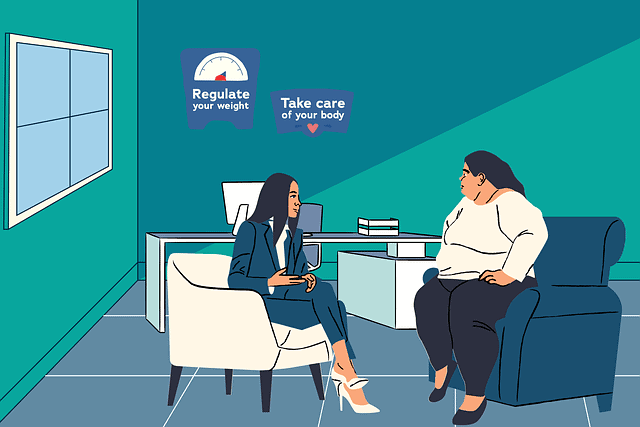Effective obesity behavioral therapies often require more than changes to diet and exercise; they demand significant changes in behavior. Eating habits, levels of physical activity, and emotional eating are just some of the behaviors that directly contribute to an individual’s weight.
Overeating in response to stress or using food as a reward are typical examples of how behavior influences weight gain. Conversely, adopting healthy behaviors can lead to sustainable weight loss and improved well-being. Therapies involving behavioral change identify and replace these negative patterns with positive actions, creating a foundation for long-term health.
Behavioral Change Therapies
Behavioral change therapies encompass a variety of approaches designed to modify harmful behaviors and establish healthier habits, especially useful in managing obesity.
Cognitive-behavioral therapy (CBT) is a prominent method that helps individuals identify and alter negative thought patterns that lead to unhealthy behaviors. It equips them with strategies to cope with challenges and resist temptations that may lead to overeating.
Motivational interviewing is another technique where therapists guide individuals to find their internal motivation to change. It is a collaborative, person-centered form of teaching to elicit and strengthen motivation for change.
This approach can be particularly effective for those who feel ambivalent about dieting and exercise, helping them to commit to the necessary changes for weight management.
Mindfulness-based interventions encourage individuals to be present and aware of their eating habits, bodily sensations, and triggers for overeating. This practice can reduce binge and emotional eating by fostering a greater understanding of the connection between emotions and food intake.
The advantage of these therapies lies in their focus on the individual’s long-term well-being. Unlike quick-fix diets or temporary programs, behavioral change therapies aim to transform the individual’s approach to food and exercise from the ground up, promoting sustainable weight management and overall health. These therapies also offer tools to handle stress and setbacks, which can prevent relapse and help maintain weight loss over time.
Practical Strategies for Obesity Behavioral Therapies
Incorporating behavioral change strategies into daily life starts with identifying unhealthy behaviors contributing to obesity. Techniques like self-reflection and journaling can be powerful tools for recognizing patterns such as emotional eating, sedentary habits, or mindless snacking.
Once you identify these behaviors, modifying them is the next step. You can do this through several strategies:
Goal Setting
Effective behavioral change begins with setting clear, achievable goals. Instead of vague ambitions like “I want to lose weight,” individuals should set specific targets, such as “I will go for a 30-minute walk five days a week” or “I will only eat desserts on weekends.”
Self-Monitoring
Keeping a daily record of food intake, exercise, and emotions associated with eating can help individuals understand their habits and the contexts in which they make unhealthy choices. Apps or diaries designed explicitly for tracking can be invaluable for this purpose.
Cue Management
This involves identifying triggers for unhealthy behaviors and modifying the environment to reduce these cues. For example, not keeping sugary snacks at home can decrease the likelihood of consuming them.
Developing Healthier Habits
Starting small and gradually building up to more significant changes makes the process more manageable. Instead of an extensive diet overhaul, one might begin by introducing more vegetables into meals or substituting water for sugary drinks.
Reward Systems
Creating a reward system that reinforces positive behavior can increase motivation. Rewards should not be food-related but could be things like a movie night or a small purchase after reaching a goal.
Social Support
Sharing goals with friends or family can create a support system that encourages accountability. Support groups or partners with similar goals can provide motivation and empathy.
Stress Management
Since stress can lead to overeating, learning stress-reduction techniques like deep breathing, meditation, or yoga can help mitigate one of the emotional triggers for unhealthy eating behaviors.
Professional Help
Sometimes, enlisting the help of professionals like dietitians, psychologists, or fitness coaches can provide the structured support needed to make substantial changes.
Flexibility
Behavior change is not about perfection. It’s essential to learn to be flexible and forgiving. If a setback occurs, assessing what went wrong is vital. Learn from the experience and move forward without self-criticism.
These strategies can help individuals make the changes necessary for sustainable weight management. The emphasis should be on gradual, consistent change rather than quick fixes, likely resulting in long-term success.
The Role of Professional Support
When undertaking behavioral change therapies for obesity management, professional support and guidance are vital. Healthcare providers, therapists, and counselors bring expertise that can significantly enhance the success of such interventions.
They offer personalized care tailored to an individual’s needs, helping identify the underlying causes of weight gain, including metabolic factors, psychological issues, or lifestyle patterns.
Oversight and Counseling
Doctors and dietitians can provide medical oversight and nutritional counseling, ensuring that weight loss efforts are safe and nutritionally adequate. Mental health professionals like psychologists or licensed therapists are skilled in cognitive-behavioral therapy and other behavioral strategies.
They help clients tackle the psychological barriers to weight loss, such as emotional eating, body image issues, and stress management. These professionals can also address any problems coexisting, like depression or anxiety, which often accompany obesity.
Moreover, professional support extends beyond the individual to involve creating a multidisciplinary team. This team approach fosters various perspectives in designing an effective, comprehensive obesity management plan.
Accountability
Regular consultations with these professionals offer accountability, which can be a powerful motivator in maintaining a healthy lifestyle. They also serve as a source of continuous education, providing the latest research and techniques in weight management.
In therapy sessions, patients can explore their relationship with food and exercise in a supportive, non-judgmental environment. Professionals can help them set realistic goals and develop coping strategies for the challenges they face on their weight-loss journey.
For example, a therapist might help an individual understand and break a habit of turning to food for comfort when stressed, replacing it with healthier coping mechanisms.
Reduce Relapse Risk
Significantly, seeking professional support can also reduce the risk of relapse by teaching long-term weight management skills rather than just focusing on weight loss. Professionals can guide the gradual incorporation of healthy habits and behaviors into everyday life, ensuring that these changes are sustainable in the long run.
The complexity of obesity often requires more than just individual effort. Professional support is crucial, offering personalized guidance and a comprehensive approach to addressing the various facets of obesity. This support not only aids in effective weight management but also contributes to overall well-being.
Benefits Of Obesity Behavioral Therapies
Significantly, seeking professional support can also reduce the risk of relapse by teaching long-term weight management skills rather than just focusing on weight loss. Professionals can guide the gradual incorporation of healthy habits and behaviors into everyday life, ensuring that these changes are sustainable in the long run.
These evidence-based strategies can guide you through self-discovery and self-improvement, leading to meaningful changes in your eating habits, activity levels, and overall health.
By committing to these approaches, you’re not just losing weight; you’re gaining a toolbox for life, capable of fostering sustained wellness and a higher quality of life. Remember, the journey to a healthier you is not just about the number on the scale—it’s about building a life you can enjoy to the fullest.
Legal Disclaimer: The content provided on obesitywoes.com is for general informational purposes only. It is not intended as health advice, nor does it constitute a medical practitioner-patient relationship. The information may not be accurate, complete, or updated at the time of viewing. Obesitywoes.com and its authors disclaim all liability for any actions taken or not taken based on the content of this site. Always consult with a registered medical practitioner in your area before making any health decisions. This website may contain links to other websites. We are not responsible for the content, accuracy, or opinions expressed in such websites, and such websites are not investigated, monitored, or checked for accuracy or completeness by us.






